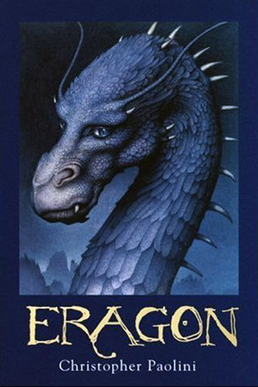
This blog is my journey through my own literary mangling. Let me explain.
"Kill your darlings" is a phrase I have heard again and again. According to this Slate article, the etymology is far more complex than I knew going into this, as I was only familiar with a passing nod to Faulkner and this Stephen King quote:
"kill your darlings, kill your darlings,
even when it breaks your egocentric little scribbler’s heart,
kill your darlings.”
I have a book. It has a long history.
At the time I am writing this, I
have recently turned 27. The first idea for this book, so different from what it
currently is, came when I was a freshman in high school, a dozen years ago. I
was age 15, at most. It’s safe to say, I saw the world differently.
I had an idea, with a friend of mine, that moved from a genuinly original idea, to a pseudo-Pokémon rip-off, to a completely different kind of rip-off.
There was a break. Years. I guess, four of them. I was a
freshman in college and I read Eragon. Anyone familiar with the fantasy genre, or YA literature, or even anyone who
walked into a Books-a-Million in the last decade has heard of his Inheritance Cycle at one point or
another.
From those I have spoken to, Christopher Paolini seems to be the kind of writer that people either love or hate (or they loved for years and then learned to hate by talking to other people who already hated him, which, I think, is just terrible. If you’re going to hate a thing, at least be original about it).
 |
| Seriously--this cover was everywhere |
From those I have spoken to, Christopher Paolini seems to be the kind of writer that people either love or hate (or they loved for years and then learned to hate by talking to other people who already hated him, which, I think, is just terrible. If you’re going to hate a thing, at least be original about it).
My own feelings varied. I loved Eragon, at first read. I ate it up. I showed all my friends, my
brother, and then we all read the next books together. I loved the world, the
characters, the story. But what I loved most of all was that it seemed doable.
For those trying to be writers, there are authors to be
admired, worshiped, and copied. Some authors sit on a pedestal—we don’t know
how they did what they did. And there are those we read that, at the end, we
say—“that was good. But not so very good. I could do that.”
I wrote a scene, trying to reach into the epic mystery I had
felt when I read Eragon, the kind of
writing built on Beowulf and Tolkien
(but more importantly Tolkien building on Beowulf).
It was a nonsense action scene, but I built a mythology on it. Hidden powers,
statues becoming people, weaklings becoming warriors.
 |
| Like this, except with far less offensive language |
I suppose I learned some things in college. But mostly I
wrote. I can see it in all my notebooks. The notes were on the pages, but my
attention was in the margins. Everything got applied to my story—anthropology,
art, western civ, mythology, composition. Four years led to two more, and
little changed. Now the stories were stranger, and my comments were too.
By this time I already had full printed copies. I finished
the first draft on July 27, 2009. Then there was a second. By the third, I’d
realized Office Depot could print double-sided, costing me half the price of
paper. Instead of wasting $45 on these ring-bound, black plastic covered
manuscripts, I was only wasting $23.
I had friends reading them. Rave reviews, of course. There
was a good mix of friendly unawareness and actual helpfulness. My brother read
the most. If I died today, he might be able to piece my story together just
because of how many times we’ve sat and talking about it. I started querying
agents in 2012.
I had some partials, but no dedicated interest. Nothing
stuck. I rewrote and rewrote. Every year I created a new, dramatic file folder
in my “writing” file. 2012. 2013. 2014. Each time, my book was revisited, redone.
This was it, the version that would change it all. But it was still the same. Paolini, and Eragon,
were amazing to me, and yet they were still criticized because they were “unoriginal,” a recreation of fantasy tropes.
What can I make if I struggle to recreate the recreation?
It’s about perception. What story do I want to tell, and,
most importantly, how do I want to tell it? What is my goal? To tell a story
that my friends and family will read, over and over again, because they love
me, or to create something real, something new?
I have to murder it. This twelve year old, fermenting piece
of work. For now, I will set it down, work on other ideas that aren’t so mired
in a decade of past words. Someday, I’ll pick it back up, and see what I can
make of it. If it’s unrecognizable, that’s because it wasn’t going anywhere as
it was.
This hurts, but not as much as failing would.
So which "darling" are you going to "murder" first?
ReplyDeleteSo which "darling" are you going to "murder" first?
ReplyDelete